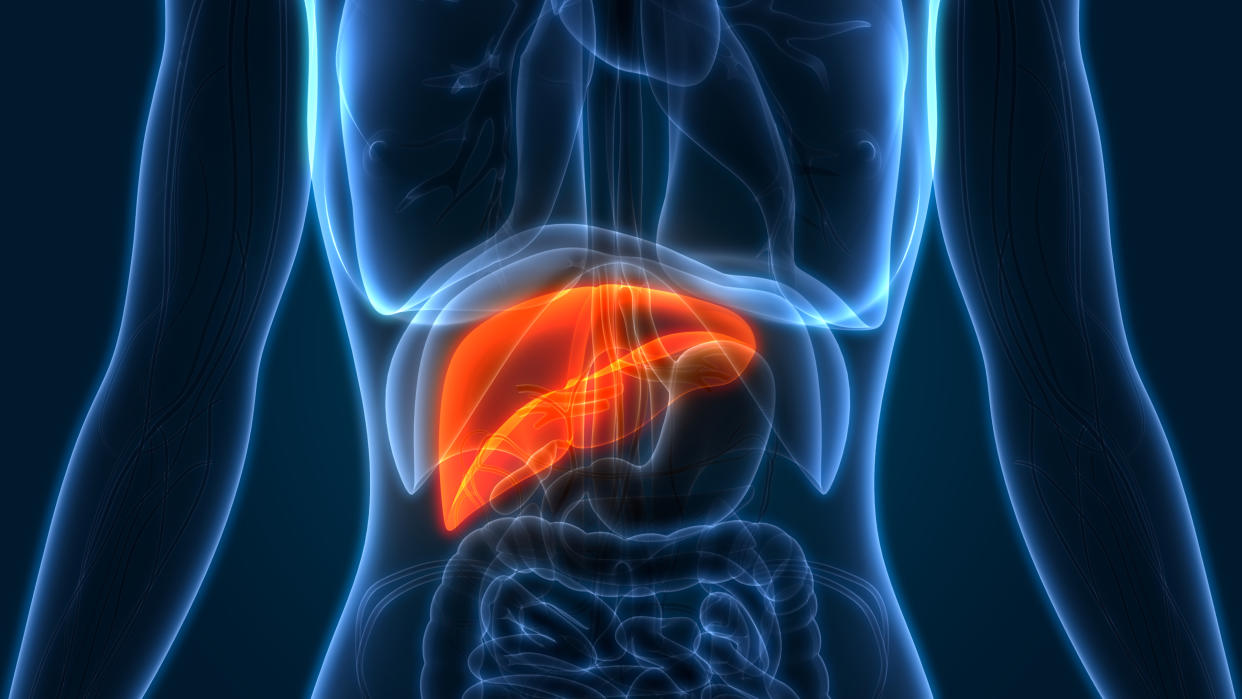With liver cancer deaths on the rise, these are the symptoms to look out for

Liver cancer deaths have risen by around 50% in the past decade, statistics show.
Data from Cancer Research UK reveals 5,700 people died from the disease in 2017, compared to 3,200 in 2007.
Experts put this down to an increase in diagnoses, which rose by 60% in the past 10 years.
Survival rates are also poor, with just 6%-to-37% of patients making it five years after their diagnosis.
With the situation only set to get worse, Yahoo UK looks at the symptoms you should be aware of.
READ MORE: Obesity overtakes smoking as risk factor for four common cancers
“Unfortunately, progress in treating liver cancer has been painfully slow and we desperately need more options for patients,” Professor Helen Reeves, Cancer Research UK’s liver expert, said.
“Another problem is the rise in the number of people being diagnosed, which has meant we are losing more people to this disease than ever before.
"Rising levels of obesity and associated conditions like diabetes and non-alcoholic fatty liver disease have likely had a big role in this, although they aren't the only factors.”
READ MORE: Cancer patient marries childhood sweetheart hours before death
Around 5,900 people are diagnosed with liver cancer every year in the UK alone, Cancer Research UK statistics show. This is set to rise by 38% by 2035.
Of all types of cancer, liver tumours have caused the largest increase in death rates over the past decade, with them even tripling since records began.
In the US, 42,030 people are expected to be told they have the disease this year, according to the American Cancer Society.
What are the signs of liver cancer?
Liver cancer is hard to spot, with symptoms often only appearing in the later stages of the disease.
As a result, most are diagnosed in A&E, according to Cancer Research UK.
Nonetheless, there are some warning signs you should look out for.
Losing more than 10% of your body weight, without trying, should raise alarm bells, according to the charity.
Jaundice can also come about if the liver is not working properly.
This leads to yellowing of the skin and eyes, as well as darker urine and lighter faeces. Most sufferers also endure itchy skin and nausea.
Cancer can also cause the liver to expand, leading to swelling and pain in the abdomen.
This may also result in a loss of appetite or feeling full quickly.
READ MORE: Woman learns she has cancer from photo at tourist attraction
A tumour can also increase pressure in the liver, causing blood to back up in the veins.
This can make the veins swell and become visible beneath the surface of the abdomen.
Perhaps surprisingly, an enlarged liver can press on nerves that connect to the right shoulder, causing the joint to become painful.
Most cases of liver cancer are associated with damage and scarring of the organ, known as cirrhosis. This is usually caused by excessive alcohol consumption.
Cirrhosis stops the liver working properly and can lead to organ failure.
Similar to liver cancer, it can cause nausea, loss of appetite, jaundice and itchy skin.
However, it can also lead to poor sex drive, fatigue, vomiting blood, dark faeces, bruising easily and swollen legs.
If you have any of the above or are concerned you may have liver cancer, see your GP.
The doctor will look over your symptoms and may you refer you for further assessment.
READ MORE: Teacher writes her own moving obituary before dying of cancer
Far from alcohol being the only cause of liver cancer, nearly a quarter (23%) of cases can be linked to being overweight or obese, Cancer Research UK statistics show.
And one in five are down to smoking, the data reveals.
Overall, around half of cases are preventable with lifestyle tweaks.
“A lot of progress has been made saving lives from cancer, but it's worrying to see deaths from liver cancer increasing at such an alarming rate,” Michelle Mitchell, Cancer Research UK’s chief executive, said.
“Far too many lives are being lost, which is why we're funding more research into this area and aiming to understand more about the biology of the disease to develop better treatments.
"There are things we can all do to make a difference to our cancer risk and it's never too late to make a change.
“Keeping a healthy weight, not smoking and drinking less alcohol will all help lower your chance of developing liver cancer."


